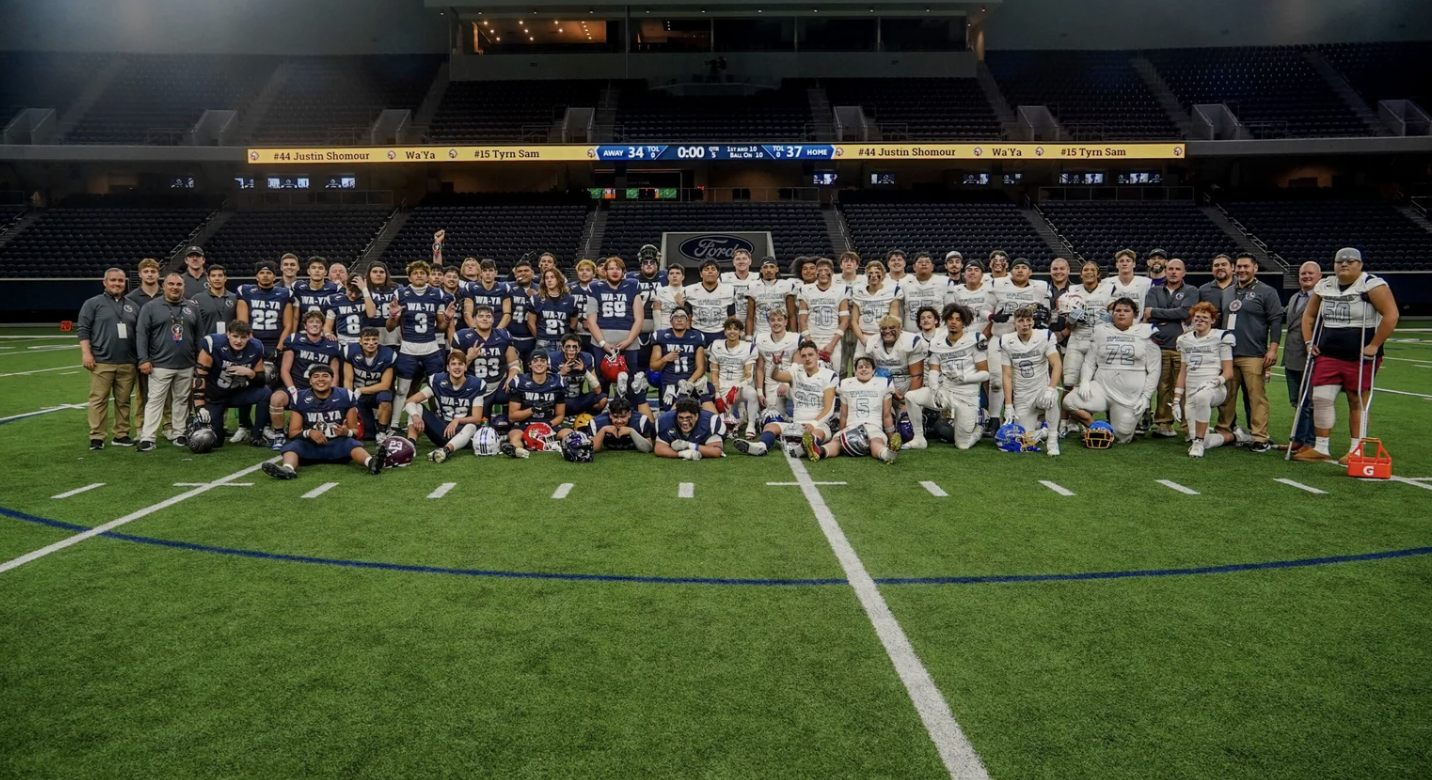
- Details
- By Kaili Berg
Seventy of the nation’s top Native American high school football players will take the field this winter at U.S. Bank Stadium, home of the Minnesota Vikings, for the 2025 Native All-American Football Game.
The event, organized by the Native American Athletic Foundation (NAAF) in partnership with the Vikings and the NFL, is set for Sunday, December 14. This year marks the fourth year of NFL involvement and the third time the Vikings have hosted the game, previously welcoming it in 2022 and 2023.
“The NFL proudly supports the Native All-American Game,” Anna Isaacson, the NFL’s senior vice president of social responsibility, said in a statement. “This game is a great opportunity for young Native players to showcase their talent, teamwork, and dedication.”
Players will be selected from tribal communities across the country and will spend the weekend in Minneapolis for football training, college preparation, leadership development, and wellness programming.
The weekend will also feature a Native Female Flag Football Clinic on Saturday, December 13, for girls in grades 6 through 12. The clinic will feature coaching, leadership sessions, and mentorship from former NFL players, college coaches, and community leaders.
Athletes will be guided by an accomplished group of Native coaches and leaders. Derek Fine, a citizen of the Cherokee Nation and former NFL tight end for the Buffalo Bills, will serve as Athletic Director.
Fine was a standout at the University of Kansas, where he captained the Jayhawks to a 12–1 season and an Orange Bowl victory. Ahman Green, a citizen of the Choctaw Nation and the all-time rushing leader for the Green Bay Packers, will return as head coach.
A four-time Pro Bowl running back, Green spent twelve years in the NFL before moving into coaching and esports.
Levi Horn, an enrolled member of the Northern Cheyenne Nation and former offensive lineman with the Chicago Bears, will also serve as head coach. Horn has since become known for his outreach and motivational work with Native youth.
“Our organization was founded to use sports as a platform to develop the next generation of leaders in Indian Country,” Michael Stopp, NAAF’s executive director said in a statement. “We’re also proud to expand our programming this year by hosting a Flag Football Clinic for Native girls.”
To be considered for the 2025 Native All-American Football Game, athletes must be enrolled members of a federally recognized Tribe and high school seniors who have completed their final football season. Applications are open now through NAAF’s website.
“We’re proud to welcome the Native All-American Game back to U.S. Bank Stadium again this season,” Brett Taber, the Vikings’ vice president of social impact said in a statement.
More Stories Like This
Hanging a Red Dress for Christmas: MMIP, Native Higher Education, and Hope for a Better New YearNative Students Can Win $5,000 Scholarship, International Distribution in Pendleton Design Contest
American Indian College Fund Raises Alarm Over Plan to Shift Native Programs Away From the Dept. of Education
MacKenzie Scott Foundation Gives $5 Million Contribution to Little Priest Tribal College
Tribal Leaders Push Back on Dismantling of U.S. Department of Education
Help us defend tribal sovereignty.
At Native News Online, our mission is rooted in telling the stories that strengthen sovereignty and uplift Indigenous voices — not just at year’s end, but every single day.
Because of your generosity last year, we were able to keep our reporters on the ground in tribal communities, at national gatherings and in the halls of Congress — covering the issues that matter most to Indian Country: sovereignty, culture, education, health and economic opportunity.
That support sustained us through a tough year in 2025. Now, as we look to the year ahead, we need your help right now to ensure warrior journalism remains strong — reporting that defends tribal sovereignty, amplifies Native truth, and holds power accountable.
 The stakes couldn't be higher. Your support keeps Native voices heard, Native stories told and Native sovereignty defended.
The stakes couldn't be higher. Your support keeps Native voices heard, Native stories told and Native sovereignty defended.
Stand with Warrior Journalism today.
Levi Rickert (Potawatomi), Editor & Publisher


